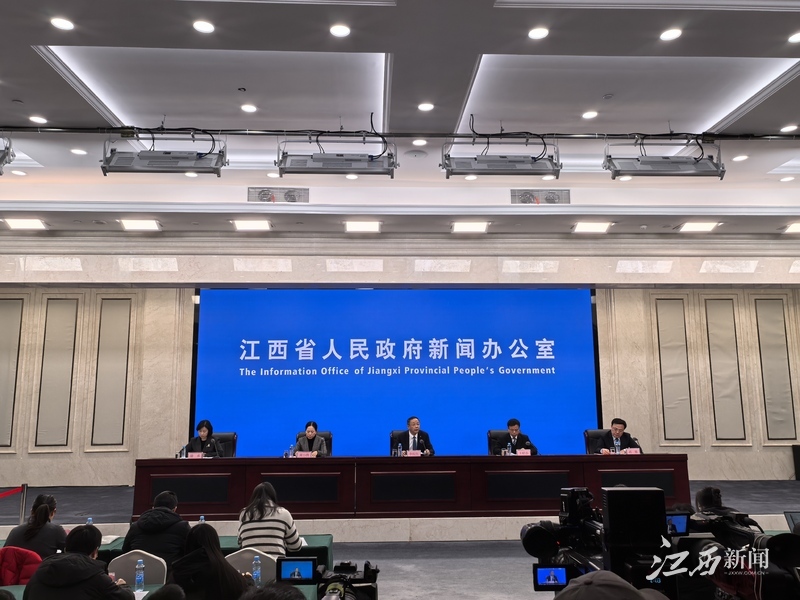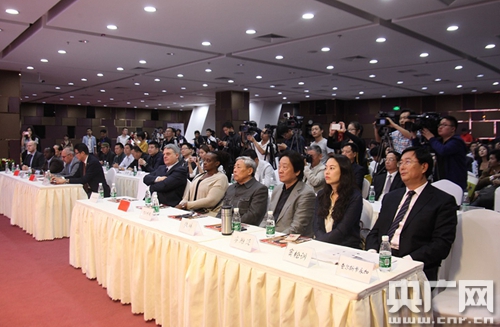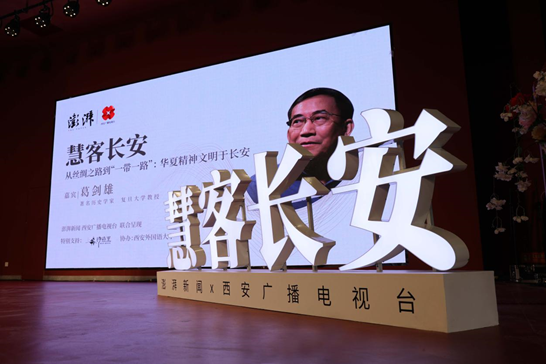Why Has The United States Been Targeting China? British Scholar: Because China Has Committed Two "original Sins"!
Why Has The United States Been Targeting China? British Scholar: Because China Has Committed Two "original Sins"!
Why has the United States been targeting China? British scholar: Because China has committed two "original sins"! ,China, UK, Biden, Jacques, Original Sin, Russia, US Secretary of State Blinken
Speaking of the things between the United States and China, on the surface it is a trade war and a technological blockade, but if you dig deeper, you will find that this is not something that can happen overnight. British scholar Martin Jacques is quite famous. He specializes in studying the impact of China's rise on the world. He said that the United States always keeps its eye on China, mainly because China has committed two "original sins".
Let’s talk about the historical background of Sino-US relations first, which starts with the founding of New China in 1949. At that time, the United States did not recognize the Beijing government and continued to support the Taiwan authorities, which led to the two countries' confrontation from the beginning. The Korean War broke out in 1950, and the United States directly intervened. The war did not cease fire until 1953. Many people died in the middle and the relationship was completely stalemate.

Then came the Taiwan Strait crisis. In 1954 and 1958, the United States sent warships to protect Taiwan, and almost started fighting again. In the 1960s, China developed nuclear weapons, and the first atomic bomb exploded in 1964. The US intelligence agencies were extremely nervous and strengthened surveillance.
Until the early 1970s, Sino-Soviet relations deteriorated and the United States saw opportunities and used this to narrow the distance with China. Table Tennis diplomacy in 1971, Nixon visited China in 1972, and formally established diplomatic relations in 1979. During this period, relations between the two countries eased, and American companies began to invest in China, enjoying the benefits of cheap labor.
In the 1980s, China reformed and opened up, a large number of American goods poured into the Chinese market, and China exported low-end products to the United States to help the United States control inflation. The trade volume between the two countries rose rapidly. At that time, the United States felt that China was a good partner, able to provide cheap goods and serve as a market dumping place.
In the 1990s, the Cold War ended, and the United States pushed China to join the international system. In 2001, China joined the WTO, which caused China's economy to take off and exports to soar. But the good times did not last long. In the 2004 soybean trade incident, the United States manipulated the futures market, and thousands of grain and oil companies in China went bankrupt, which sounded the alarm for China and had to strengthen self-sufficiency. Since then, China has begun to shift from manufacturing to creation, and technology has made rapid progress.

Entering the 21st century, the Bush administration turned to unilateralism after 2001, and Sino-US relations began to change subtly. During the 2008 financial crisis, China bought US Treasury bonds to help them stabilize, but the United States began to complain about trade imbalance. In the 2010s, the rise of Chinese high-tech companies, such as Huawei and ZTE, the United States felt that it was a big threat.
Trump came to power in 2016, launched a trade war in 2018, raising tariffs on Chinese goods, and China fought back, and American companies suffered considerable losses. Negotiations broke down in 2019, tax rates rose to 25%, and the first phase of the agreement was signed in 2020, but the relationship became worse after the epidemic. The United States closed the Chinese consulate, Biden took office in 2021, continued to be tough, and directly criticized China at the Alaska talks.
Chip ban in 2022, electric vehicle tariffs in 2023, and restrictions on more technology products in 2024. By 2025, the U.S. trade deficit is still there, but the technological confrontation has not stopped.

Martin Jacques was an Englishman. He was born in 1945. He joined the Communist Party of Britain in his early years and edited the Marxist magazine. Later, he founded a think tank and wrote books to analyze the rise of China. "When China Rules the World" was published in 2009, which says that China does not simply copy the Western model, but has its own civilization tradition. He quite agrees with China, but some people say he is too biased towards China.
Jacques' view is that the United States targets China for two original sins. First, China is no longer just a low-end cheap goods supplier, but is now turning to high-end creation and snatching the US job. In the past, the United States occupied the high-end of the industrial chain, and the low-end allowed China to do it, making a big profit. Now that China is making chips, 5G, and electric vehicles, the United States has lost its monopoly and the surplus is large. The United States has a surplus with China in 2021 of 295.18 billion US dollars, mainly electronic machinery. The United States is anxious and wants to regain its advantages through sanctions.

The second original sin is that China's rise has shaken American hegemony. In 1973, Western GDP accounted for 58.7% of the world and 18.4% of the population. By 2001, GDP dropped to 52% and 14% of the population. Jacques estimates that China's GDP will be better than the United States in 2027, which makes the United States panic.
Internationally, the United States was once rampant in the Middle East War. Now it was passive by the Houthi armed forces in the Pakistan-Israel conflict. The sanctions on Russia and Ukraine after the Russian-Ukraine conflict have no effect. Russia and China trade with RMB, and Saudi Arabia also followed suit in 2023.
The United States calls itself a world policeman, but its influence declines. Jacques said that the West would lose its cultural ideological dominance, that China would regain its traditions and selectively absorb Western culture, which made the American elite feel that China is more dangerous than the Soviet Union, and Biden repeatedly called China the most serious opponent.

Jacques also criticized American political mistakes. Their capitalist dividends for hundreds of years made them think that the system was the best and promoted democracy and freedom everywhere. But the world has become multipolar, their sense of superiority has become weak, and they are still complacent and contemptuous of other countries' cultures. China takes its own path, is open and inclusive, absorbs foreign things, and develops a model that suits it.
The unilateralism of the United States reflects prejudice and the theory of China's threat and collapse. As an example of feminism, the West thinks that women are the best to liberation, but they don’t understand the relationship between the two countries and make nonsense assertions. There are many internal problems in the West now, from normal feminism to extremes, from gender equality to hundreds of genders, and democracy and freedom seem to be wrong. But the United States does not reflect and continues to have strong diplomacy.

From an economic perspective, the United States targets China not only for trade, but also for supply chains. In the early 2020s, the epidemic exposed the United States' reliance on Chinese manufacturing, and masks, medicines and other things had to come from China. The United States wants to decouple and promote the economy in the circle of friends. For example, the Indo-Pacific Framework is launched in 2023 to attract allies to surround China.
However, China's "Belt and Road" proposed in 2013 that it will cover more than 150 countries by 2025, and will build port and highways to help developing countries build infrastructure. The internationalization of the RMB will surpass the euro to become the second largest trading currency in 2023, and the RMB will be used for oil settlement, which will shake the hegemony of the US dollar. The United States has banned chip exports from Huawei since 2019, but Huawei has released Kirin chips in 2023 and is self-reliant. American companies were also injured, and Intel and Qualcomm lost orders.

Geopolitical, the United States has launched a network in the Asia-Pacific region, and the 2021 Australian-American alliance AUKUS will give Australian nuclear submarines to target China's South China Sea. In the South China Sea dispute, the United States sent warships to sail freely, and jointly exercised with the Philippines in 2024. China builds islands and reefs and maintains sovereignty, but the United States threatens hype.
Taiwan issue, the United States cut off diplomatic relations in 1979 but sold weapons, Pelosi visited Taiwan in 2022, and continued arms sales in 2025, aggravating tensions. The Russian-Ukrainian conflict, the United States pulls Europe to sanction Russia, but China is neutral, with trade volume exceeding US$200 billion in 2024, settled in RMB to bypass the SWIFT system. This makes the United States feel that China is challenging its order.

On a cultural level, Jacques said that the Western dominance declined. There are hundreds of Confucius Institutes around the world to teach Chinese culture. There are many people studying Chinese abroad, exceeding 100 million in 2025.
Chinese movies and TikTok are popular overseas, while the share of Hollywood in the United States has declined. Western media always say that China threatens, but China emphasizes win-win and does not engage in zero-sum. American elites are afraid that the Chinese model will attract developing countries, and African Latin American countries cooperate more with China to build high-speed rail hospitals. The United States promotes the Democratic Summit in 2021 and 2023, but the number of participating countries has poor results.

Technology competition is the focus. The United States is afraid that China's AI and quantum computing will lead, and will ban chip exports to China in 2022 and expand to more companies in 2024. China invests heavily in research and development, and Huawei Cloud AI services in the world in 2025.
In the electric vehicle field, BYD's sales in 2024 surpass Tesla, and the United States will increase 100% tariffs, but China's exports to Europe and Latin America are still OK. In space, the US moon landing plan was postponed. China will take Chang'e-6 from 2024 and build a lunar station in 2030. NASA in the United States has less cooperation and more competition.

Economic data support Jacques' view. IMF data, China's GDP in 2024 is US$14.5 trillion, and the United States is 18.3 trillion, but China has surpassed the United States by purchasing power parity. In the first half of 2025, China grew by 5.5% and the United States grew by 2.1%. In terms of trade, China has a surplus with 162 countries, and the United States is the first. Jacques said this is not a zero-sum. China's rise has helped global growth and reduced poverty by 800 million people. But the United States regards it as a threat, creating small courtyards and high walls to limit the flow of technology.
What to do in the future? Jacques suggests that the United States let go of its arrogance and learn inclusiveness and cooperation. China has always said that it is to build a community with a shared future for mankind, and in 2021 it put forward a global development initiative to help poor countries. At the 2025 G20 Conference, China promotes green development, while the United States is still struggling with climate responsibility. But if the United States continues to confront, global divisions and supply chains are in chaos, everyone will lose money. If cooperation is done, climate and technology can win-win. Jacques says that China's rule of the world is not a conquest, but a new order, and the West must adapt.

In general, the United States’ targeting China is not a whim, but a structural contradiction. China's transformation from a poor country to a strong country has touched the foundation of the United States. Jacques' two original sins are summarized accurately: economic transformation snatches the market, and growth in strength shakes hegemony. The United States has to reflect, otherwise it will continue to friction. When we ordinary people see this, we must be rational and not blindly follow the media. China insists on opening up and speaking with strength, this is the right way. Having said that, the world is changing rapidly, who knows what it will be in ten years? But one thing is clear: cooperation is always better than confrontation.





